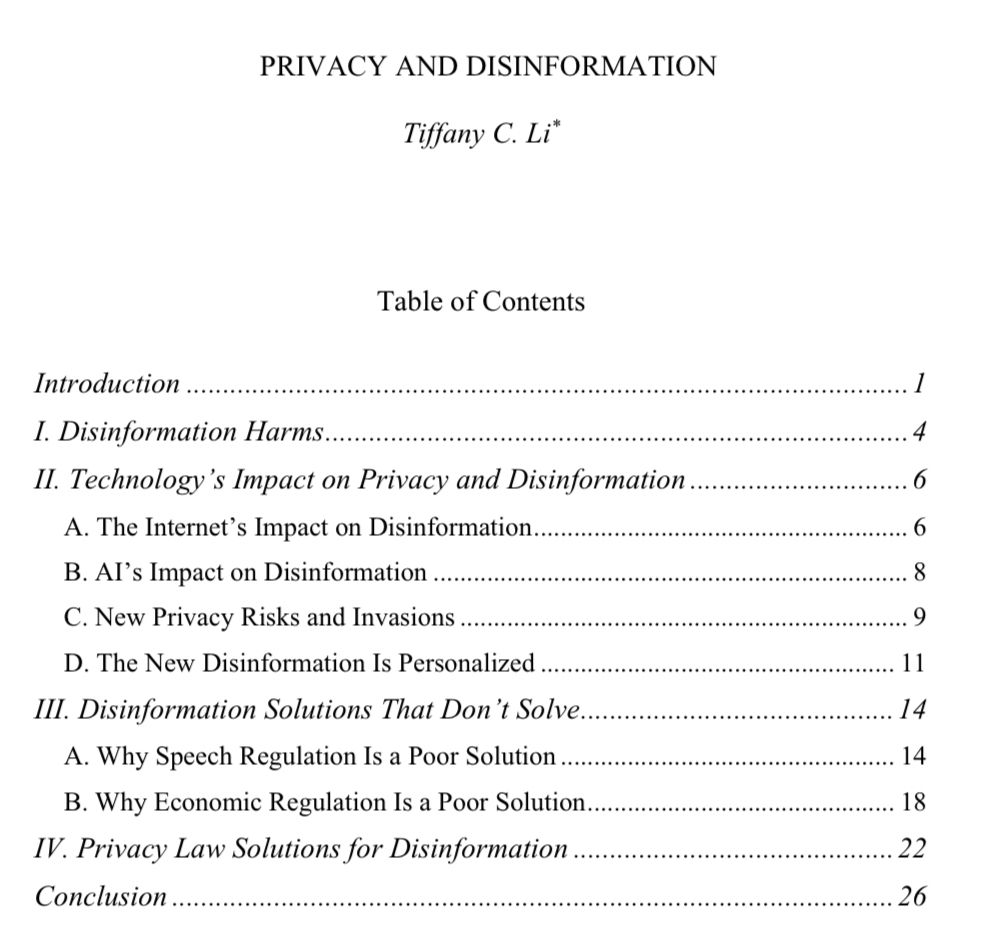
For our part the @lco-cdo.bsky.social 2024 Consumer Protection Project recommended Ontario regulate consumer notice to include “market contexts” - plain language descriptions of systems & real risks ie “structural uncertainties.” See p 33-36: www.lco-cdo.org/wp-content/u...
For our part the @lco-cdo.bsky.social 2024 Consumer Protection Project recommended Ontario regulate consumer notice to include “market contexts” - plain language descriptions of systems & real risks ie “structural uncertainties.” See p 33-36: www.lco-cdo.org/wp-content/u...
papers.ssrn.com/sol3/papers....
papers.ssrn.com/sol3/papers....
We're excited to share the current version more broadly!
We're excited to share the current version more broadly!



www.stanfordlawreview.org/online/prote...

www.stanfordlawreview.org/online/prote...



He joins a community of over 1,800 scholars who share a commitment to advancing the humanities and social sciences.
👇 shorturl.at/3Bkyg

He joins a community of over 1,800 scholars who share a commitment to advancing the humanities and social sciences.
👇 shorturl.at/3Bkyg

In “Why AI Requires Rebuilding Privacy Law”, Prof. @ignaciocofone.bsky.social explains why AI demands shifting privacy law from individual control to harm prevention.
👉 www.youtube.com/watch?v=lsQV...
In “Why AI Requires Rebuilding Privacy Law”, Prof. @ignaciocofone.bsky.social explains why AI demands shifting privacy law from individual control to harm prevention.
👉 www.youtube.com/watch?v=lsQV...
Read the draft here (and later finalized in UC Law Journal): papers.ssrn.com/sol3/papers....

Read the draft here (and later finalized in UC Law Journal): papers.ssrn.com/sol3/papers....
Makes a perfect summer reading list.
papers.ssrn.com/sol3/papers....
Makes a perfect summer reading list.
papers.ssrn.com/sol3/papers....

🤖 Video links are now included for each of our panels. Revisit or check out the conversation if you couldn't join us in person.
🤖 And (see next post) 1/3
www.uwindsor.ca/law/3450/wer...
🤖 Video links are now included for each of our panels. Revisit or check out the conversation if you couldn't join us in person.
🤖 And (see next post) 1/3
www.uwindsor.ca/law/3450/wer...
Full review: bookwyrm.social/user/bwaber/... (5/5)



